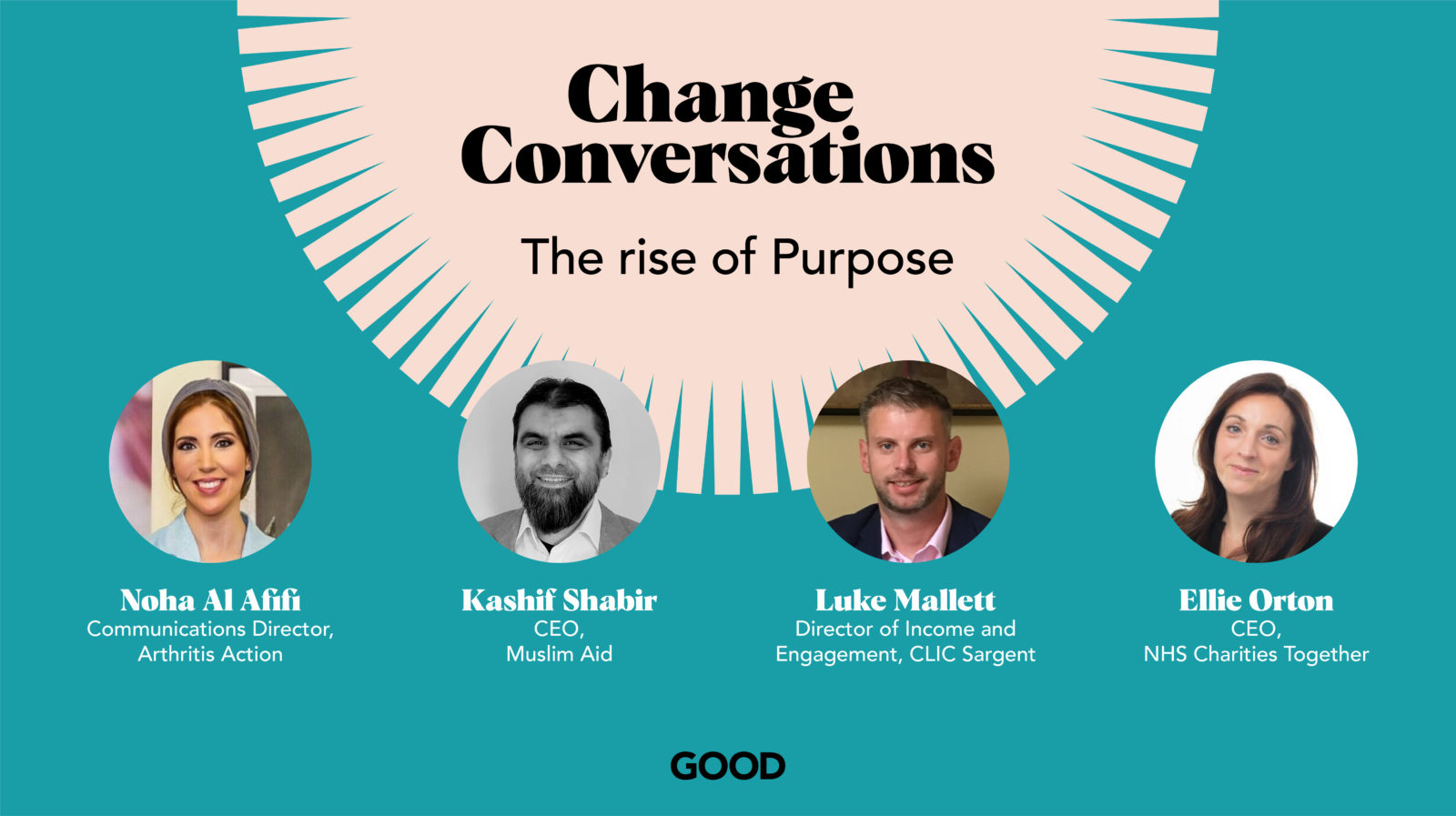
Change Conversations: The rise of Purpose
With Purpose now top of the agenda for commercial brands and the private sector increasingly being seen as the solution to society’s deepest issues, how should charities adapt to remain relevant and continue to influence?

This was the topic of debate for our second Change Conversations panel discussion. We were joined by leading charity experts from across the sector; Noha Al Afifi, Communications Director at Arthritis Action; Kashif Shabir, CEO at Muslim Aid; Luke Mallett, Director of Income and Engagement at CLIC Sargent; and Ellie Orton, CEO at NHS Charities Together.
The overwhelming sentiment was that charities should view the rise of commercial Purpose as a vast opportunity. But the sector must approach it with a ‘business head’ to realise the true potential of this shift. Here are some key takeaways from the panel discussion.
Consider the true size of the opportunity; beyond simply financial partnerships
“Charities need to step up and present what they have to offer and not just be seen as wanting money from companies for their own gain”, Noha Al Afifi advised.
Charities ought to be strategic in terms of opportunities within the commercial business space. Charities have years of experience and expertise in their fields, which businesses can’t replicate or produce overnight and both sides need to understand what value they each can gain from partnerships, and be open to these discussions in order to effect positive change. They need to take advantage of their expertise and use it to their advantage to create prosperous partnerships. In Noha’s experience of coming from the commercial sector, she notes that a common frustration was that charities approach businesses for purely financial reasons as opposed to looking at what the purpose of the partnership could be. This is where the sector falls short. Charities need to have the confidence to step up and present the vital role they can play.
Identify the gaps between commercial and charities skillsets, and form a symbiotic relationship
Fellow panellist Luke Mallett, agreed, saying that both charities and commercial brands have their own strengths; “businesses have the power to bring reach, marketing muscle and audience insight. However, charities have real authenticity, story and real connection to purpose.” It is this direct connection that charities need to take advantage of, “as charities, one of the most powerful things we bring is the stories”, he comments. This is our area of expertise, and in order to maximise the impact partnerships can have, charities need to take the time to identify the gaps, and what they have to offer and then build partnerships from there.
Know your niche
Kashif Shabir, commented that charities need to be a lot better at defining their niche and not try to do everything. Instead, they need to “bite the bullet and pick a cause and stick with it”. In this way, they will be acting more like commercial brands; identifying their USP and keeping this focus. This specialism will then lead to much more effective partnerships with the commercial sector, who seek to partner with an organisation that directly impacts the problem they’re looking to fix.
Authentic partnerships
Authenticity was a buzzword of the event, with Ellie Orton, CEO of NHS Charities Together, arguing that when faced with the rise of purpose, charity organisations need to understand that they are distinct and they “can bring authenticity to that distinctiveness.” Charities can bring true authenticity to the Purpose that commercials are trying to achieve, and this should be viewed as a tremendous opportunity for any third sector organisation seeking to take advantage of the rise of commercial Purpose.


